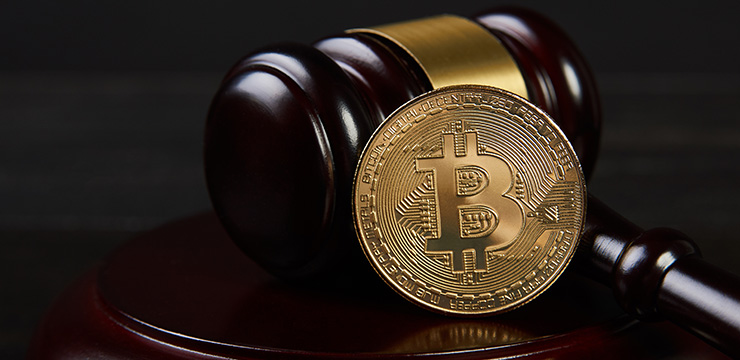Following a recent opinion by a Florida appellate court, virtual currency dealers who do business in, from, or into Florida – even individuals in the business of selling their own virtual currency for cash – may be required to obtain a “money services business” license from Florida’s Office of Financial Regulation and maintain costly anti-money laundering programs in accordance with Florida and federal law or face criminal penalties.

On January 30, Florida’s Third District Court of Appeal reinstated criminal charges against Florida resident Michell Espinoza for money laundering and “unlawfully engaging in the business of a money transmitter and/or payment instrument seller without being registered with the State of Florida.” State v. Espinoza, No. 3D16-1860, slip op. (Fla. Dist. Ct. App. Jan. 30, 2019). The trial court had previously dismissed the charges against Espinoza, agreeing with his argument that selling Bitcoin does not qualify as “money transmitting” under Florida law because Bitcoin is not “money,” among other reasons. State v. Espinoza, No. F14-2923 (Fl. Cir. Ct. July 22, 2016). The appellate court disagreed and determined that even a person in the business of selling his own Bitcoin for cash is a “money transmitter” and “payment instrument seller” under Florida law and is therefore required to be licensed as a “money services business.”
The charges against Espinoza stem from a sting operation in 2013, in which undercover detectives contacted Espinoza through a Bitcoin exchange site, LocalBitcoins.com. Espinoza posted on that site that he would sell Bitcoins for cash through in-person transactions. Espinoza was not licensed or registered as a “money services business” with Florida or federal regulators. An undercover detective met Espinoza several times and paid him a total of $1500 cash for Bitcoin, earning Espinoza a profit. During those transactions, the undercover detective allegedly made clear his desire to remain anonymous and said he was involved in illicit activity. For example, the undercover detective allegedly told Espinoza that he needed the Bitcoin to buy stolen credit card numbers from Russians.
The Florida appellate court’s determination that Bitcoins are “monetary value” and “payment instruments” under Florida law fits within a line of cases finding that Bitcoin qualifies as “money” for the purposes of money laundering and anti-money laundering laws. For example, in 2014 Judge Rakoff, a United States District Judge for the Southern District of New York, found that Bitcoin clearly qualifies as “money” or “funds” for the purposes of the federal money transmitter statute because “Bitcoin can be easily purchased in exchange for ordinary currency, acts as a denominator of value and is used to conduct financial transactions.” United States v. Faiella, 39 F. Supp. 3d 544, 545 (S.D.N.Y. 2014) (citing SEC v. Shavers, 2013 WL 4028182, at *2 (E.D. Tex. Aug. 6, 2013)). Some states have also codified virtual currency into their anti-money laundering regulations. For example, after the trial court determined that Bitcoin was not a “monetary instrument” that could be laundered under Florida’s money laundering statute, the Florida legislature amended the statutory definition of “monetary instruments” to explicitly include the term “virtual currency.” Fla. Stat. § 896.101(2)(f) (2017). Other states, however, have taken a different approach. Pennsylvania’s Department of Banking and Securities (“DoBS”), for example, recently published guidance that virtual currency, including Bitcoin, is not considered money under Pennsylvania law. “Money Transmitter Act Guidance for Virtual Currency Businesses,” Pennsylvania Department of Banking and Securities (Jan. 23, 2019).
The Florida appellate court found that Espinoza was operating as a “money transmitter” and therefore was a “money services business,” simply by engaging in the business of selling his own Bitcoin for cash and not otherwise acting as a middleman between parties. The trial court had applied the more common and narrow understanding that a “money transmitter” operates “like a middleman in a financial transaction, much like how Western Union accepts money from person A, and at the direction of person A, transmits it to person or entity B,” as explained by the appellate court.
To reach its conclusion, the Florida appellate court looked to the text of Florida’s money services business statute – which the court believes is critically different from federal regulations. Under both federal and Florida state law, a “money services business” is defined to include a “money transmitter.” Compare 31 C.F.R. § 1010.100(ff) with Fla. Stat. § 560.103(22). According to the Florida appellate court, the federal definition of “money transmitter” includes a third-party requirement. Under federal regulations, a “money transmitter” means a person engaged in the “acceptance of currency, funds or other value that substitutes currency from one person and the transmission of currency, funds, or other value that substitutes for currency to another location or person by any means.” 31 C.F.R. § 1010.100(ff)(5(i)(A) (emphasis added). In comparison, the Florida statute defines a “money transmitter” as an entity “which receives currency, monetary value, or payment instruments for the purpose of transmitting the same by any means.” Fla. Stat. § 560.103(23). The Florida appellate court found that, in contrast to the federal regulations, the Florida statute’s “plain language clearly contains no third party transmission requirement in order for an individual’s conduct to fall under the ‘money transmitter’ definition” and, as such “decline[d] to add any third party or ‘middleman’ requirement.”
The appellate court’s interpretation of the text of Florida’s statute is disputable. From a statutory interpretation perspective, the middleman requirement is arguably inherent in the plain meaning of the word “transmit,” which is defined by Merriam-Webster as “to send or convey from one person or place to another.” (Notably, Pennsylvania’s DoBS recently issued guidance interpreting the word “transmitting” in a comparable state statute to include a third-party requirement. See “Money Transmitter Act Guidance for Virtual Currency Businesses,” Pennsylvania DoBS (Jan. 23, 2019) (interpreting statute that “[n]o person shall engage in the business of transmitting money by means of a transmittal instrument for a fee or other consideration with or on behalf of an individual without first having obtained a license from the [DoBS]” to impose a third-party requirement).) It would, therefore, be reasonable to interpret Florida’s statute as consistent with federal regulations. Moreover, the Florida appellate court’s interpretation of the statute could have broad and troubling consequences. Although dicta in the Florida appellate court’s decision make it seem like the court is making a distinction between “merely selling [one’s] own personal bitcoins” and “marketing a business,” the court’s statutory interpretation leaves open the possibility that the mere act of selling one’s own property – without registering as a “money services business” – could be a crime.
While we watch to see whether Espinoza will appeal this decision to the Florida Supreme Court, virtual currency dealers should be aware that selling virtual currency in, from or into Florida may require a money services business license and the maintenance of an anti-money laundering program.




